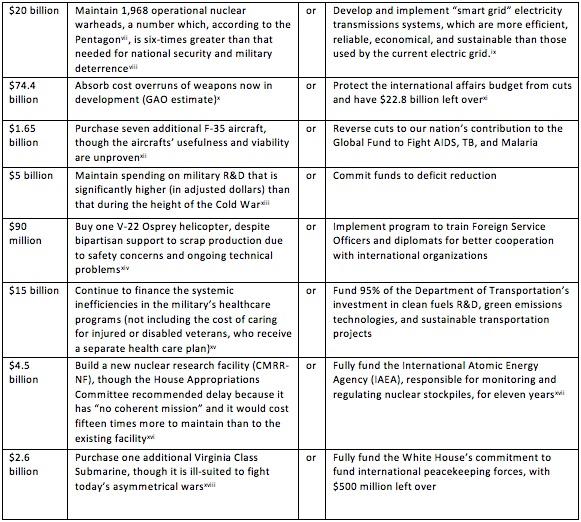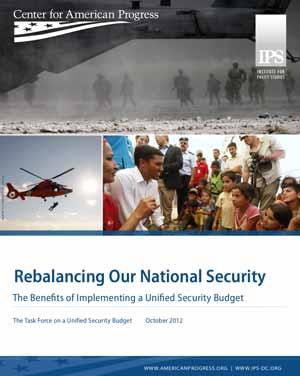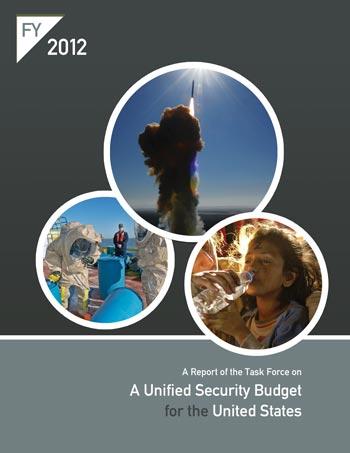
Trade-Offs Needed to Enhance U.S. Soft Power
The U.S. government needs to develop a unified national security budget that allows the president and the Congress to make trade-offs like these.

The U.S. government needs to develop a unified national security budget that allows the president and the Congress to make trade-offs like these.
“We can make cuts to the military budget without compromising our national security. The Unified Security Budget shows how to cut Pentagon spending to the levels required by sequestration, but still invest in programs that strengthen national security.” – Miriam Pemberton, Institute for Policy Studies

We can save $440 billion over a 10-year period without compromising national security.
Narrows Funding Gap Between Offense and Prevention to Strengthen Security, Reduce Deficit, Create Jobs

A team of experts recommend ways to rebalance our national security budget.

Paul Ryan’s spending plans call for slashing the money the State Department can use to protect diplomats.
Dick Cheney and House Republicans claim military spending cuts will hurt the country, but most of the pain will be in military contractors’ pockets.
Experts skeptical about aerospace industry study on military spending and jobs. “Defense contractors are notoriously bad jobs creators,” said IPS Research Fellow Miriam Pemberton.

The military spending cut is real for the first time, but only about one percent of the Pentagon’s total.

A study commissioned by the largest defense industry trade association says that military spending creates jobs. The facts, however, indicate otherwise.

The supercommittee seems unlikely to make substantial military cuts and instead quite likely to cut spending for the other agencies under the “security spending” umbrella, even though the Pentagon gets the lion’s share of that category’s funding.

The planned cuts to the bloated U.S. military budget in the debt ceiling deal are long overdue, but lawmakers will likely slash civilian U.S. foreign policy instruments before they significantly reduce military spending.

Please join keynote speaker Thomas R. Nides, Deputy Secretary of State for Management and Resources, for a discussion of the Obama administration’s national security budget for the United States. Deputy Nides has been at the forefront of pushing for new, innovative budget measures for State and USAID operations.
It is official U.S. doctrine that defense, diplomacy and development are co-equal contributors to our security.
Over the last decade, military spending has nearly doubled. We have a bold vision about ending waste in the vast military budget, and providing a road map on how to shift security resources more effectively.